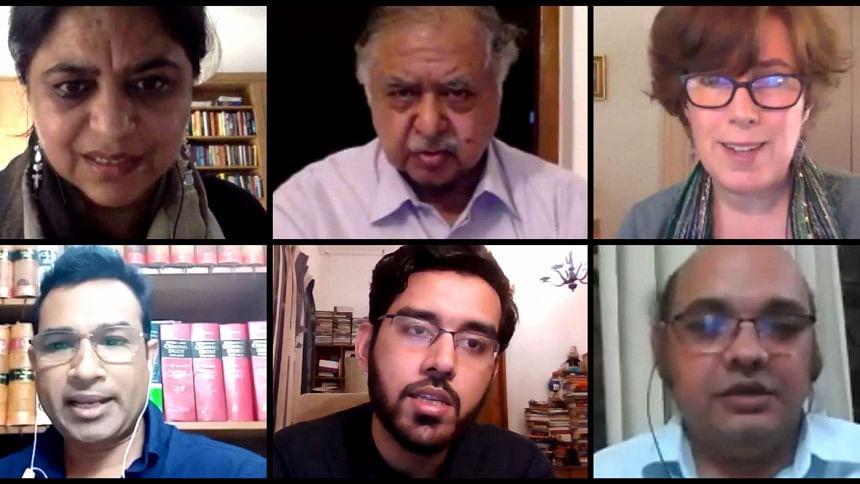BLAST and Tort Law Project host webinar on compensation for road crashes

13 August 2020 marked the 9th death anniversary of filmmaker Tareque Masud and cinematographer Mishuk Munier, and their colleagues who were killed in a gruesome road crash in 2011. To commemorate this tragic day and the ongoing fight towards ending impunity for road fatalities, Bangladesh Legal Aid and Services Trust (BLAST) and Tort Law Project Bangladesh (TLPB) organised a webinar on 'Accountability for Road Crashes: Compensation under the Road Transport Act 2018' on 13 August 2020. This was livestreamed on Facebook with thousands of viewers joining.
Barrister Sara Hossain, Honorary Executive Director, BLAST moderated the programme and gave an overview of the Catherine Masud and others case (70 DLR 349) filed under the Motor Vehicles Ordinance 1983 (MVO), and now pending in the Appellate Division. She explained how the legal team had filed for the case to be transferred from the Motor Accident Claims Tribunal in Manikganj to the High Court Division (HCD) under the extraordinary procedure provided Article 110 of the Constitution. Considering the urgent necessity of a precedent on tort law that could act as guidance for lower courts, a Division Bench headed by Justice Naima Haider had granted the transfer petition (67 DLR 527). The case was then tried in the Division Bench led by Justice Zina Ara. In December 2017, the HCD decided that the driver and owners had been responsible, and awarded 4.4 crores in favour of Catherine Masud, (and to Tareque and her son, Nishaad, and Tareque's mother) the main part of which is to be paid by the bus owners, 30 lacs by the bus driver while only 80,000 is to be paid by the insurance company.
Taqbir Huda, Research Specialist, BLAST and Coordinator, TLPB, presented the compensation framework for road crashes under the Road Transport Act 2018 (RTA). He highlighted how the right of road crash victims to sue for compensation in court, through an ostensibly fast track procedure, under the MVO has been taken away, and replaced with the right to apply to a new government administered mechanism, the "Financial Assistance Fund" by Chapter 9 of the RTA. This has effectively removed the responsibility of motor vehicle owners to pay compensation in road crash cases caused by their vehicles. He explained the importance of ensuring vicarious liability of motor vehicle owners to bring them to account, and to achieve and lasting change in the road transport sector, so road transport owners are compelled to operate more responsibly, without causing such unnecessary risks to human life and security.
Catherine Masud, award winning filmmaker and wife of Tareque Masud, spoke about how she viewed the compensation case and tort liability more broadly as an essential component of building accountability in the road transport sector. She identified a key reason behind continuing road crashes as the exploitative working conditions imposed on bus drivers by road transport owners to maximise profits as a key reason for road crashes. She noted that no amount of money can bring back the life of a loved one who has been wrongfully killed, but called for the importance of ensuring that there is a price to pay for causing danger to human lives.
Advocate Tajul Islam then explained the funding sources of the Financial Assistance Fund, and how this might increase the risk of extortion and corruption. Barrister Abdul Halim, also raised concerns about whether Chapter 9 of the RTA undermines the constitutionally guaranteed rights to life and protection of law of road crash victims.
Dr. Kamal Hossain, eminent jurist and lead counsel in the Catherine Masud compensation case, was a special guest speaker, and encouraged lawyers and activists to identify protection gaps in existing legislation and continue the ongoing fight for legal redress and legal reform.
Event report by BLAST and TLPB.

 For all latest news, follow The Daily Star's Google News channel.
For all latest news, follow The Daily Star's Google News channel. 




Comments